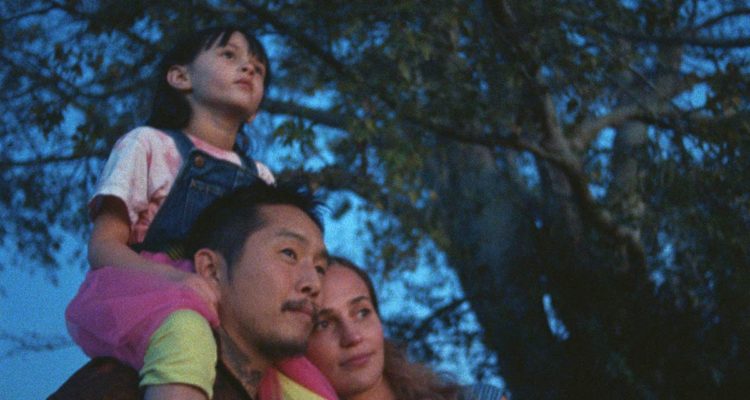Imagine being told one day that you can no longer, legally, live in the one place you’ve long called home; if you fight to stay and lose, you’ll never be able to return again. Such a scenario is the dramatic crux for Korean-American writer/director Justin Chon’s latest film, the beautiful, emotional drama “Blue Bayou,” which premiered earlier this year at the Cannes Film Festival.
READ MORE: Fall 2021 Movie Preview: 60+ Must-See Films
The story of Antonio LeBlanc (Chon, in a bruising performance), a dedicated family man and soon-to-be father of two, brought to the U.S. when he was a small child. Raised (though that’s a generous term) in the streets and swamps of the South, Antonio has long struggled to hold down a job—having been incarcerated for theft and other smalltime crimes over his life—but has persisted in carving out a path for himself, meeting the love of his life, Kathy (Alicia Vikander, utterly heartbreaking) and helping care for her daughter Jessie (Sydney Kowalske) from a prior relationship with a New Orleans cop named Ace (Mark O’Brien). After a public domestic spat between the adult trio finds Antonio behind bars, Immigrations and Customs Enforcement (ICE) inform Chon’s character that his adopted parents did not properly fill out his citizenship papers. He’s going to be deported as a result, even though he’s married to a U.S. citizen, has lived in American all his life, and Kathy is pregnant with his daughter.
While there’s a clear weight to the subject matter being spotlighted, “Blue Bayou” manages to refrain from feeling like an “issues movie,” the heaviness of its dramaturgy earned through a lived-in sense of place and earnest life experience. There isn’t any cliché Hollywood hopefulness to be found in any of Chon’s films. His palpable debut project “Gook” – which takes place on the day of the ’92 L.A. riots —touches on festering micro-aggressions of the Asian immigrant experience. At the same time, his second feature, “Ms. Purple,” is a tender look at terminal illness and loss. Chon is very aware of how intense such material can be, often injecting lighter, character-defining moments and specificity of circumstance to establish empathy without forcing perspective.
READ MORE: The Best Films Of 2021, So Far
Like fellow Asian American filmmakers such as Lulu Wang or Lee Isaac Chung, Chon’s movies feel like a breath of fresh air after decades of tokenized representation. “Fuck messaging!” Chon’s character in “Gook” shouts near the end of the film. The sentiment is a fitting summation of an artist like Chon’s long-festering frustrations with Hollywood’s typical approach to such subjects, and we were humbled to sit down with Justin for a chat about his latest film and what it meant to him.
I have to say thank you for “Ms Purple,” which hit super close to home for me. My siblings and I took care of our Korean-American father for years when he was sick. So, thanks for making movies that tackle such tough subjects. There’s an artistic solemnity to your work that’s so powerful, and you’ve taken that even further with “Blue Bayou.” It doesn’t feel like an “issues movie,” but it hits those notes…
Yeah, absolutely, and thank you for the compliments. I started writing this before “Ms. Purple”—I shot it in between while trying to make this, so it wasn’t a conscious decision to hit harder. This particular film was about something I felt needed to be exposed and wanted to shine a light on—in terms of immigration policy and the adoptee experience; those were the things that really mattered to me.
Your movies tackle heavy problems, but they’re so rich in culture and texture too, such as the Vietnamese party scene. Does that help these aspects feel more human and less… heavy?
The whole movie could be super dark, heavy, and melancholic, but I think it’d just be too much to sit through for 2 hours. Specifically with that scene I wanted to give the main character perspective on where he’s at in life—how he ended up there, where he is headed, and these kinds of considerations—and then you see this party full of Vietnamese people and he thinks: “Is this what my life could possibly be like; with this group?” Is it a window into where he’s going? It poses a lot of questions for Antonio.
READ MORE: 12 Movies To Watch In September: ‘Card Counter,’ ‘Eyes Of Tammy Faye’ & More
More from this interview on the next page…

